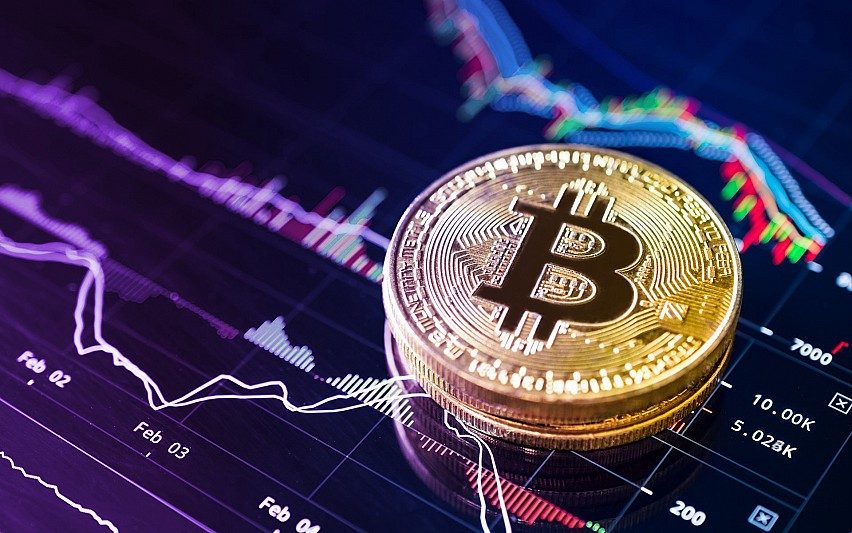Bitcoin Supply Shrinks as Holders Refuse to Sell
19.08.2024 17:00 1 min. read Alexander Stefanov
Recent on-chain data reveals that about 75% of all Bitcoin in circulation has stayed untouched for over six months.
Glassnode’s hodl wave chart, which analyzes blockchain activity, indicates that nearly three-quarters of Bitcoin has remained in wallets throughout 2024, even though the cryptocurrency’s value has dropped by 21% from its highest point.

This trend suggests that many long-term investors are holding onto their Bitcoin, likely expecting future price increases.
Such behavior reduces the amount of Bitcoin available for trading, potentially driving prices up as demand grows and supply diminishes.
In a recent analysis, James Check noted that over 80% of short-term Bitcoin holders are experiencing losses, having bought their Bitcoin at higher prices. This situation could lead to further selling if these investors decide to cut their losses, mirroring patterns seen in previous years.
Right now, over 80% of #Bitcoin Short-Term Holders are underwater, meaning their coin was acquired at a price above the current spot price.
This is similar to 2018, 2019, and mid-2021 which signalled many investors were at risk of panicking, and precipitating a bearish trend. pic.twitter.com/8jM7PBqh5z
— _Checkmate 🟠🔑⚡☢️🛢️ (@_Checkmatey_) August 19, 2024
Market sentiment continues to be pessimistic, with the Crypto Fear & Greed Index showing a score of 28, indicating significant fear, levels not seen since December 2022.
-
1
Bitcoin Dominance Nears Key Resistance — Is Altseason Coming Next?
13.07.2025 17:00 2 min. read -
2
Bitcoin Price Prediction: As BTC Hits New All-Time High Is $200K In Sight?
14.07.2025 21:56 3 min. read -
3
Esports Giant Moves Into Bitcoin Mining
05.07.2025 13:00 2 min. read -
4
Elon Musk Unveils His Own ‘America Party,’ Signals Pro-Bitcoin Political Shift
07.07.2025 11:40 2 min. read -
5
Bitcoin Blasts Past $121,000 as Institutions Fuel Rally—Will Altcoins Follow?
14.07.2025 8:15 2 min. read
Is Bitcoin’s Summer Slowdown a Buying Opportunity?
Bitcoin may be entering a typical summer correction phase, according to a July 25 report by crypto financial services firm Matrixport.
Massive Bitcoin Move Sparks Panic, Price Tests Range Low
Bitcoin has dropped sharply to test its local range low near $115,000, with analysts pointing to renewed whale activity and long-dormant supply movements as key contributors to the decline.
Bitcoin Scarcity Deepens: Less Than 5.3% Left to Mine
Bitcoin has reached a critical milestone in its programmed supply timeline—only 5.25% of the total BTC that will ever exist remains to be mined.
Strategy to Raise Another $2.47 Billion for Bitcoin Acquisition
Strategy the company formerly known as MicroStrategy, has announced the pricing of a new $2.47 billion capital raise through its initial public offering of Variable Rate Series A Perpetual Stretch Preferred Stock (STRC).
-
1
Bitcoin Dominance Nears Key Resistance — Is Altseason Coming Next?
13.07.2025 17:00 2 min. read -
2
Bitcoin Price Prediction: As BTC Hits New All-Time High Is $200K In Sight?
14.07.2025 21:56 3 min. read -
3
Esports Giant Moves Into Bitcoin Mining
05.07.2025 13:00 2 min. read -
4
Elon Musk Unveils His Own ‘America Party,’ Signals Pro-Bitcoin Political Shift
07.07.2025 11:40 2 min. read -
5
Bitcoin Blasts Past $121,000 as Institutions Fuel Rally—Will Altcoins Follow?
14.07.2025 8:15 2 min. read


